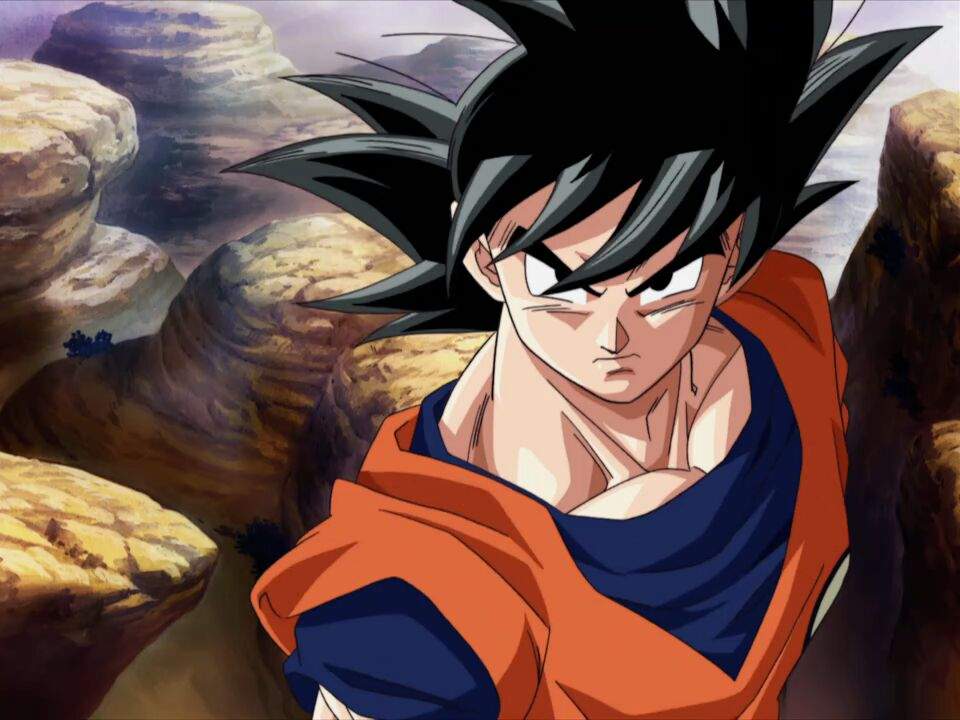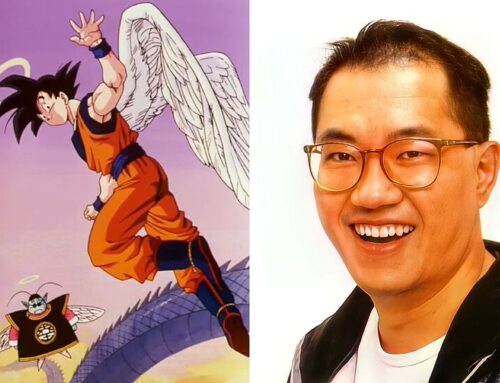Reflecting on my graduation has me nostalgic and thinking about the “gospel truths” that I’ve seen in my favourite action hero: Goku.
“Corey,” you say as you roll your eyes. “Dragon Ball is so nerdy. Just stop.”
“Ridiculous!” I say, finger in the air. “Every good story has eternal lessons. Surely, the world’s most popular action cartoon and its soon-to-be mascot of the Tokyo Olympic games hero can give us some worthwhile lessons.”
I’m going to avoid spoilers, but some form of them is unavoidable. Consider yourself warned!
Transformation comes through our greatest difficulties.
Chances are, you’ve probably seen Goku with yellow hair, or seen the memes about Frieza reaching his “final form.”
Dragon Ball loves transformations. It’s a martial arts story, so the ongoing themes involve self-improvement and reaching new heights as you push yourself to the limits.
Sometimes that means you get a makeover.
The most satisfying transformations, both in life and Dragon Ball, feel earned. Anything meaningful takes sacrifice and work; anything otherwise just doesn’t match real life, and we, the observer, know this.
Still to this day, when I feel like something in my life is in need of transformation, some part of me needing to change, or some goal is in need of desperate pursuit, I think of Goku and his friends always pushing to the very end of their limits so that they can reach the next level and overcome.
And yes, sometimes getting to the next level takes some good old-fashioned screaming.
Friends are worth fighting for.
One of Goku’s trademark traits is his steadfast love for his friends.
In fact, next to his desire to reach new heights of strength, his friends are his primary external motivation. He doesn’t seem to care about things like recognition or status.
Even though Goku isn’t particularly emotionally available, he is well-liked for his simple altruism. That’s a good lesson for young men in particular: being useful – more than being nice or safe or even charming – is what people want and need in their fellow human beings.
While he doesn’t fight for his friends simply to benefit from them in some way, they are a major part of his success and quality of life. From senzu beans to food to plain old companionship, Goku reaps the benefits of hard-fought-for friendships, even if he wasn’t looking for anything in the first place.
Redemption is within reach, even for the darkest souls.
Goku has become notorious for giving his enemies the benefit of the doubt again and again. And again. So much so that it’s become a sort of meme among fans.
Funny thing is, it’s actually worked. More than a few of these enemies become friends after Goku shows them respect even in defeat. His sportsmanship draws out the best in people; effectively, he humanizes them.
It’s not that they all of a sudden like him. Rather, Goku reframes their worldview and self-understanding. He reorients their perspective from “I need to hurt/kill to save myself” to “I can fight for something greater, like self-betterment, and I don’t need to kill to save myself, since the one stronger than me doesn’t want to kill me.”
Always show mercy.
Mercy comes hand in hand with respect and humanization. But it goes further: it forgives.
As I mentioned, Goku has a habit of treating his enemies with respect. He humanizes them where most would rather dominate and destroy. He stands as a polar opposite to the series’ most well-known protagonist, Frieza, who is merciless and conniving.
But even Frieza, who destroyed planets and civilizations (including some that mattered to Goku), receives mercy from Goku.
I don’t know if I’d call it “loving your enemies,” but this mercy is akin to Jesus’ well-known teachings.
The idea of God initiating with humanity in the story of the Bible is a story of loving enemies since humanity is framed as just that – God’s enemy. Yes, there are Satan and the demons, but they’re not the main villains on Earth. They stir the pot, but humans start the fight with God.
God chooses to love in spite of this constant insult; Goku shows steadfast mercy and respect towards his enemies, even in the face of insult and risk. God’s mercy leads to humanity’s redemption; Goku’s mercy leads to his enemies’ change of heart.
This is how the flat character arc of Goku and characters like Captain America change the world around them. They are unchanging, an embodied principle that is undeniable. The world tries to change them, to make them falter, but they remain steadfast; in fact, the world is the one that gets changed by them.
I’ve often wondered what would have happened if a rapist or murderer showed up at the churches I’ve attended in the past. Would the congregants show love; or would they complain that they don’t feel safe? Would they give dirty looks, or talk about the person behind their backs?
Ideally, they’d respond like Goku. Show respect and grant the benefit of the doubt while holding to your values. Be a conduit of change without being self-righteous. Show mercy.
Kinda like Jesus did.
Keep. Pushing.
You need only watch about five seconds of anime to realize most of it is about “the next level.” Training arcs, transformations, and wild retcon power-ups are mainstays in Japan’s popular cartoons.
Dragon Ball is no exception. Honestly, it may have started it all.
But there’s a reason these power-up stories are so popular: like the above principles, power-ups are archetypal and human.
Something deep within our bones (or at least our biology) knows that striving with all you’ve got for the next level is what it takes to win at life. When we were running from lions and tigers, you had to keep going. “But I’m tired” wasn’t an option.
Same with war. Let your guard down for a second, get sloppy, and you’re done.
While real-life limits might be more constricting than in Dragon Ball (though a man can dream…), the mentality of pushing ourselves to a new plateau can’t be underestimated.
Who really knows what the limits are if we keep pushing?
Love the process.
Sometimes pushing the limit is tough. Goku stands out yet again in his approach to training: he faces it with a determined smile.
There are essentially two ways of understanding problems: either as challenges or as stressors. You can stand up straight and take it on (challenge) or you can roll your eyes and reluctantly deal with it (stressor).
There is never a challenge Goku doesn’t face head-on (except maybe doing the dishes).
I’ve heard Floyd Mayweather is similar. Triple H, of WWE fame, was with him moments before a big match, hanging out. The wrestler kept insisting he should probably leave Mayweather to prepare. The boxer wanted him to stay and just hang out, apparently uninterested in “getting psyched” for his big match.
“If I’m ready, I’m ready,” Mayweather finally said. No sense dwelling on the fight before it began. No need to make it a bigger deal than it is.
Worry gets you nowhere; it can’t add a single hour to your life, Jesus says, but it’ll shave off years if you let it. It’ll also cause you to slip up and fail at challenges you’d normally succeed at. Anxiety hides intelligence and skill because it ruins focus.
All the more reason to keep shifting your attitude to one of loving the process. Loving the challenge and being excited for the chance to prove yourself or even fail and learn something.
When the Japanese Olympics finally happen, you’ll see Goku as one of the mascots. I hope they play on some of these themes. They speak to the athletic endeavour as well as anything, just as the athletic endeavour speaks to much of life.
Transformation. Redemption. Sportsmanship. Mercy. Perseverance. Optimism.
Gospel truths, in every sense of the phrase.






